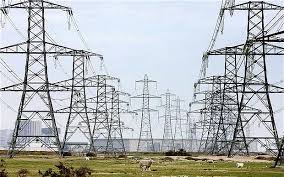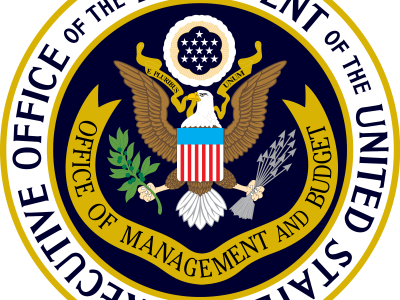Administrative Law
Clarifying the Congressional Review Act
The Ninth Circuit rules on the preclusive effect of a CRA disapproval in a wilderness protection case.
Soon after Trump took office, Republicans used the Congressional Review Act (CRA) to overturn sixteen Obama-era regulations. If they win control of the government in 2024, they’ll undoubtedly do the same thing to Biden regulations. It behooves us, then, to understand the effect of these legislative interventions. A Ninth Circuit ruling last week in a …
Continue reading “Clarifying the Congressional Review Act”
CONTINUE READINGEnvironmental Justice, Truck Pollution, and the Biden EPA
How will EPA integrate EJ into its rule making? The answer remains murky.
EPA recently released a notice of proposed rulemaking for pollution from new heavy-duty vehicles. I was interested to see how environmental justice figured into the analysis, looking for clues about how the Biden Administration plans to make EJ part of decision making. What I found wasn’t very enlightening. Perhaps they’re still trying to come up …
Continue reading “Environmental Justice, Truck Pollution, and the Biden EPA”
CONTINUE READINGSmoothing the Path for Transmission Lines
Fights over who should pay for power lines may become much easier to solve.
New high-power transmission lines have to run a regulatory gauntlet to get approved. One of the biggest barriers, however, isn’t about whether the line can be built but who will pay for it. That has turned out to be a much knottier problem than you might think. A decision by the D.C. Circuit on Friday, …
Continue reading “Smoothing the Path for Transmission Lines”
CONTINUE READINGMajor Questions About Today’s Big Climate Case
Here’s what you need to know about today’s oral argument in W. Va. v. EPA
The Supreme Court is hearing oral argument this morning in West Virginia v. EPA. The case is a challenge by the coal industry and coal states to EPA’s power to limit carbon emissions by power plants. Here’s what to look for today. Q: What is the case about? A: In practical terms, the question is what EPA …
Continue reading “Major Questions About Today’s Big Climate Case”
CONTINUE READINGThe Black Box of OIRA
OIRA oversees the whole regulatory state. We probably know more about the inner workings of the CIA.
The Office of Information and Regulatory Affairs (OIRA) oversees government regulation across the federal government. Some portray it as a guardian of rationality, others as biased in favor of industry. Public information about OIRA is so limited that it’s impossible to know one way or the other, due to the veil of secrecy that surrounds …
Continue reading “The Black Box of OIRA”
CONTINUE READINGJustice Breyer’s Nuanced Voice in Environmental Law
In a thoughtful, undramatic way, Breyer has turned out to be a valuable supporter for environmental regulation.
Given Justice Breyer’s announced retirement, it seems like a good time to assess his contribution to environmental law. When Bill Clinton nominated him for the Supreme Court, there was a great deal of uneasiness among environmentalists about Justice Breyer. As an academic, he had sounded a cautious note about government regulation, calling for more deliberation …
Continue reading “Justice Breyer’s Nuanced Voice in Environmental Law”
CONTINUE READINGDefending EPA’s Authority to Fight Climate Change – at the Supreme Court
Sean Hecht and Ted Lamm co-author amicus brief on behalf of Clean Air Act expert Tom Jorling
This week, Sean Hecht and I filed an amicus brief at the Supreme Court in West Virginia v. EPA in defense of EPA’s authority to effectively regulate greenhouse gas emissions under the Clean Air Act. Our client is Tom Jorling, a former Senate staffer and EPA official who was directly involved in drafting the Act …
Continue reading “Defending EPA’s Authority to Fight Climate Change – at the Supreme Court”
CONTINUE READINGOne Year and Counting
How does Biden’s first year compare with Trump’s? Biden has been much more effective.
If you compare Biden’s performance with his promised agenda, the first year has been disappointing. If instead you compare him with his predecessor, Biden has done more to achieve his environmental goals. The difference is that Trump was judged on the basis of his rhetoric, while Biden is judged based on his achievement. Four years …
Continue reading “One Year and Counting”
CONTINUE READINGMore on How the Vaccine Mandate Cases May Impact Climate Policy
How much is the Court likely to prune back EPA’s powers?
In a Friday post, I sketched some thoughts about how the Supreme Court’s vaccine mandate rulings might impact EPA’s power to control carbon emissions. I think it’s worth unpacking both the Court’s opinions a little more and the issues at stake in a pending climate change case, West Virginia v. EPA. The Court ruled in …
Continue reading “More on How the Vaccine Mandate Cases May Impact Climate Policy”
CONTINUE READINGToday’s Vaccine Cases: Implications for Climate Change Regulation
Today’s ruling are (somewhat) good news in terms of West Virginia v. EPA?
Today, the Court’s conservative Justices split the difference in two cases involving vaccine mandates, striking down OSHA’s mandate but upholding a more limited mandate for healthcare workers. The cases also split the conservative Justices themselves, with three hardliners (Thomas, Alito, and Gorsuch) seeking a more activist ruling in the OSHA case and dissenting in the …
Continue reading “Today’s Vaccine Cases: Implications for Climate Change Regulation”
CONTINUE READING












